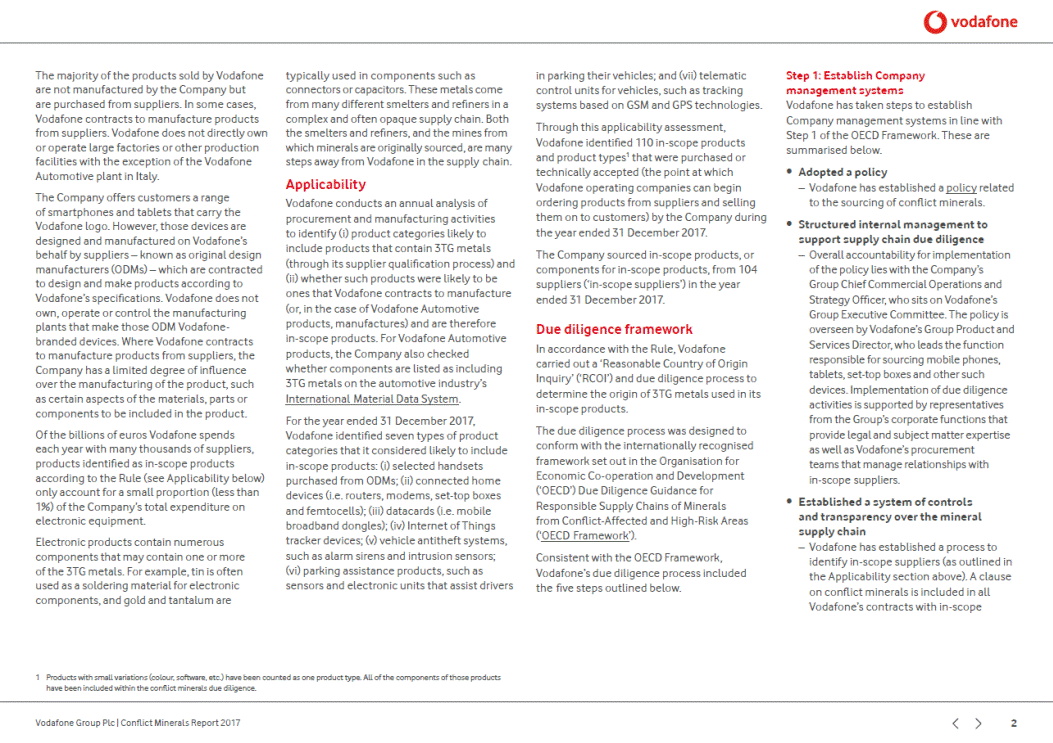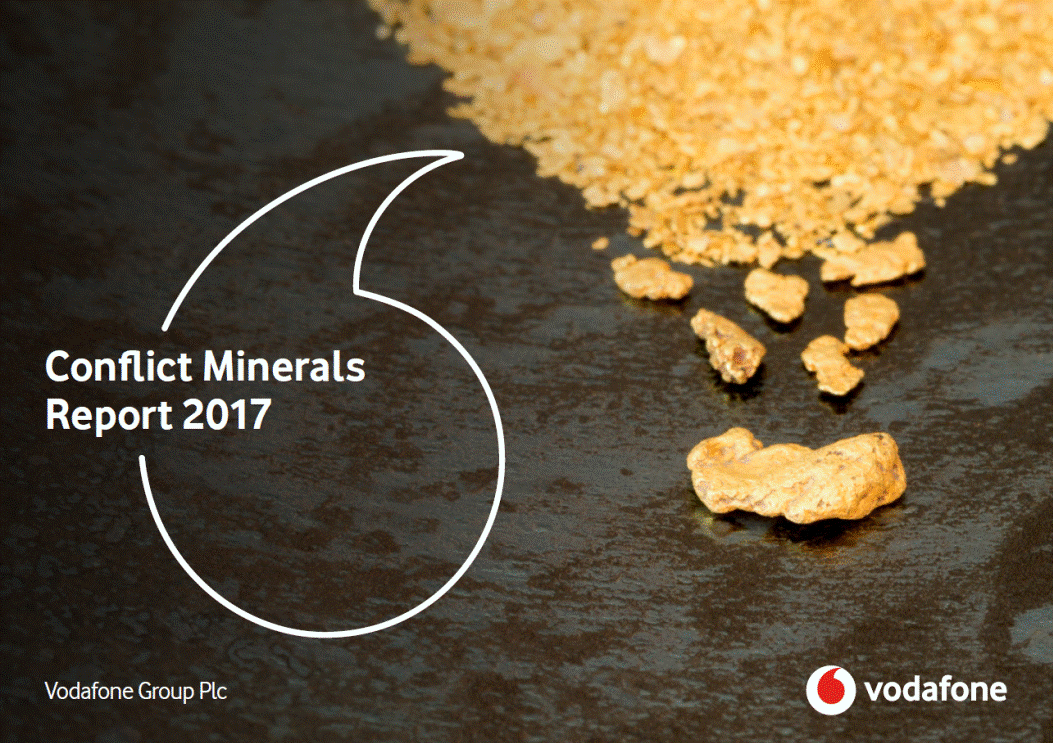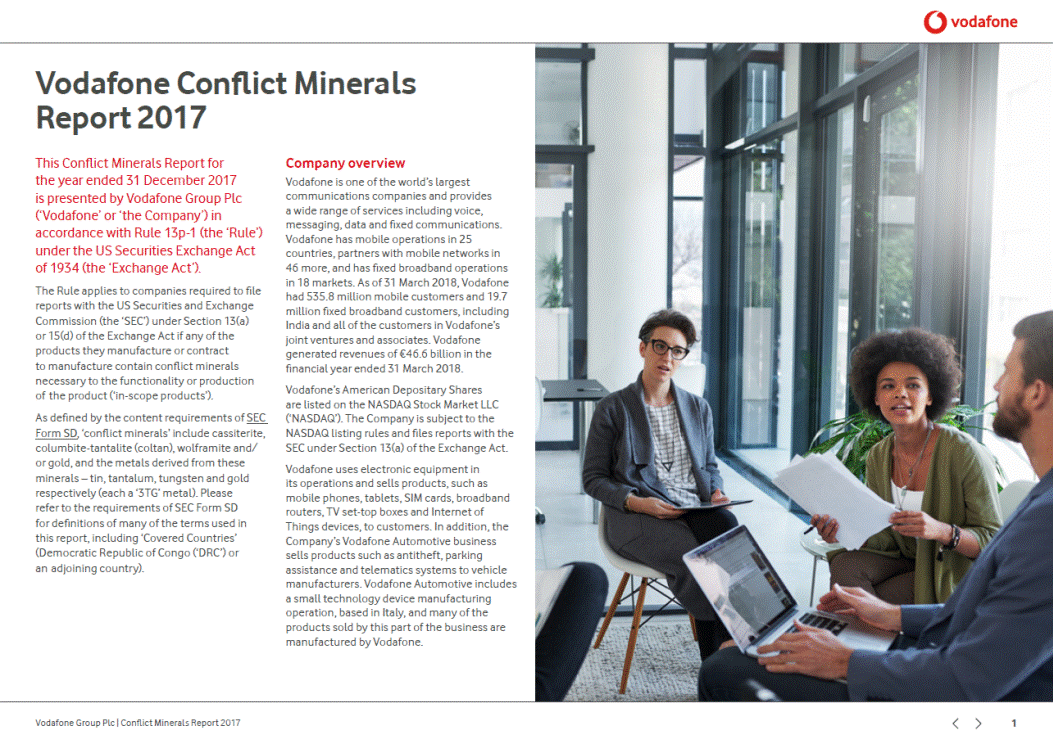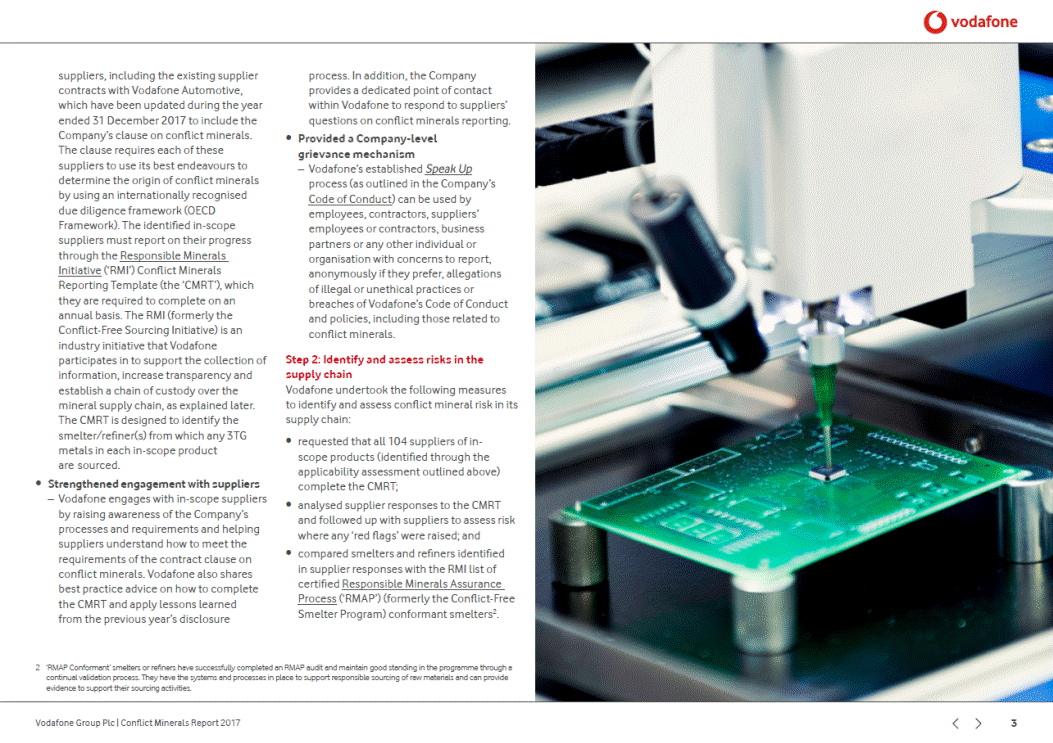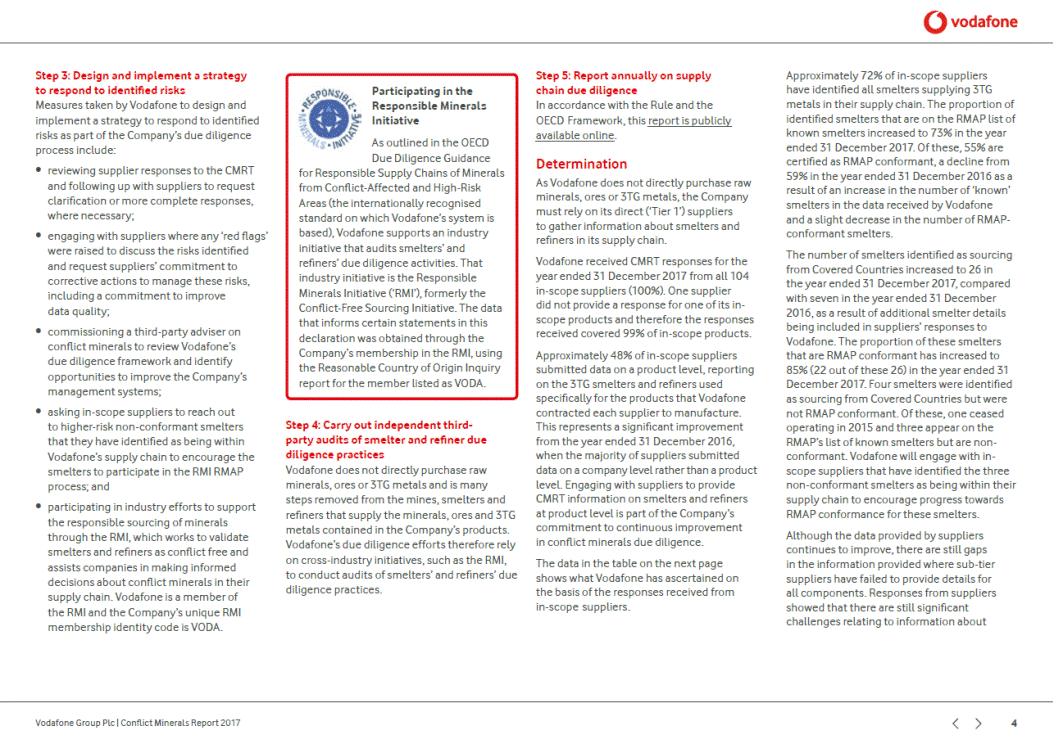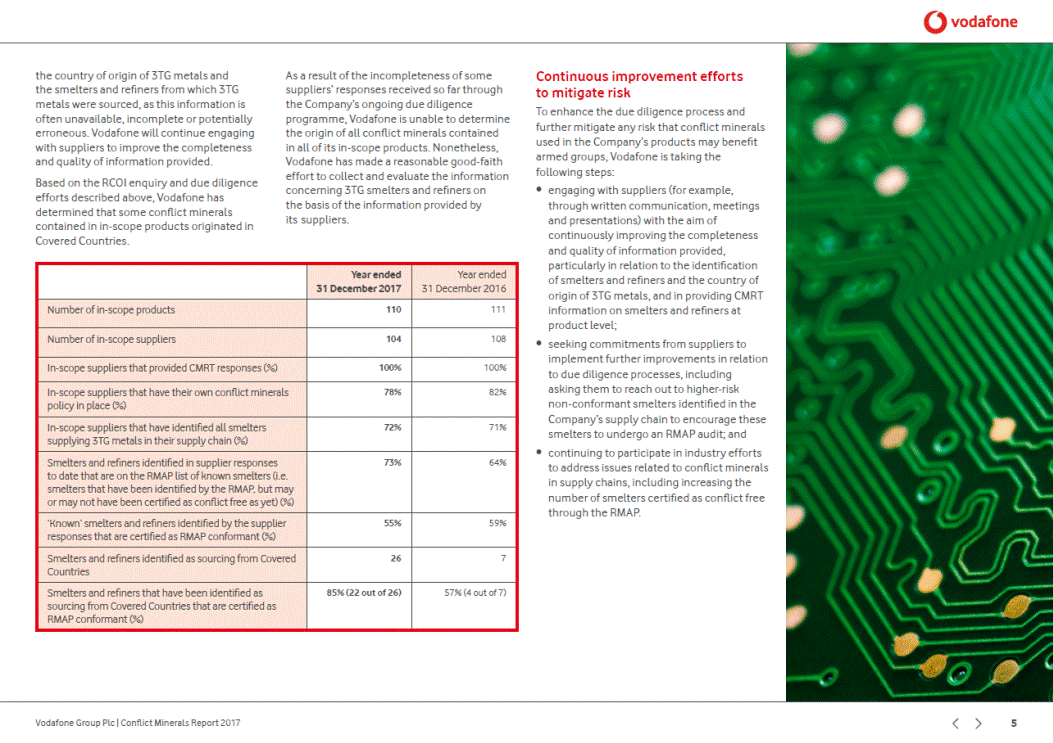The majority of the products sold by Vodafone are not manufactured by the Company but are purchased from suppliers. In some cases, Vodafone contracts to manufacture products from suppliers. Vodafone does not directly own or operate large factories or other production facilities with the exception of the Vodafone Automotive plant in Italy. The Company offers customers a range of smartphones and tablets that carry the Vodafone logo. However, those devices are designed and manufactured on Vodafone’s behalf by suppliers – known as original design manufacturers (ODMs) – which are contracted to design and make products according to Vodafone’s specifications. Vodafone does not own, operate or control the manufacturing plants that make those ODM Vodafone-branded devices. Where Vodafone contracts to manufacture products from suppliers, the Company has a limited degree of influence over the manufacturing of the product, such as certain aspects of the materials, parts or components to be included in the product. Of the billions of euros Vodafone spends each year with many thousands of suppliers, products identified as in-scope products according to the Rule (see Applicability below) only account for a small proportion (less than 1%) of the Company’s total expenditure on electronic equipment. Electronic products contain numerous components that may contain one or more of the 3TG metals. For example, tin is often used as a soldering material for electronic components, and gold and tantalum are typically used in components such as connectors or capacitors. These metals come from many different smelters and refiners in a complex and often opaque supply chain. Both the smelters and refiners, and the mines from which minerals are originally sourced, are many steps away from Vodafone in the supply chain. Applicability Vodafone conducts an annual analysis of procurement and manufacturing activities to identify (i) product categories likely to include products that contain 3TG metals (through its supplier qualification process) and (ii) whether such products were likely to be ones that Vodafone contracts to manufacture (or, in the case of Vodafone Automotive products, manufactures) and are therefore in-scope products. For Vodafone Automotive products, the Company also checked whether components are listed as including 3TG metals on the automotive industry’s International Material Data System. For the year ended 31 December 2017, Vodafone identified seven types of product categories that it considered likely to include in-scope products: (i) selected handsets purchased from ODMs; (ii) connected home devices (i.e. routers, modems, set-top boxes and femtocells); (iii) datacards (i.e. mobile broadband dongles); (iv) Internet of Things tracker devices; (v) vehicle antitheft systems, such as alarm sirens and intrusion sensors; (vi) parking assistance products, such as sensors and electronic units that assist drivers in parking their vehicles; and (vii) telematic control units for vehicles, such as tracking systems based on GSM and GPS technologies. Through this applicability assessment, Vodafone identified 110 in-scope products and product types1 that were purchased or technically accepted (the point at which Vodafone operating companies can begin ordering products from suppliers and selling them on to customers) by the Company during the year ended 31 December 2017. The Company sourced in-scope products, or components for in-scope products, from 104 suppliers (‘in-scope suppliers’) in the year ended 31 December 2017. Due diligence framework In accordance with the Rule, Vodafone carried out a ‘Reasonable Country of Origin Inquiry’ (‘RCOI’) and due diligence process to determine the origin of 3TG metals used in its in-scope products. The due diligence process was designed to conform with the internationally recognised framework set out in the Organisation for Economic Co-operation and Development (‘OECD’) Due Diligence Guidance for Responsible Supply Chains of Minerals from Conflict-Affected and High-Risk Areas (‘OECD Framework’). Consistent with the OECD Framework, Vodafone’s due diligence process included the five steps outlined below. Step 1: Establish Company management systems Vodafone has taken steps to establish Company management systems in line with Step 1 of the OECD Framework. These are summarised below. • Adopted a policy – Vodafone has established a policy related to the sourcing of conflict minerals. • Structured internal management to support supply chain due diligence – Overall accountability for implementation of the policy lies with the Company’s Group Chief Commercial Operations and Strategy Officer, who sits on Vodafone’s Group Executive Committee. The policy is overseen by Vodafone’s Group Product and Services Director, who leads the function responsible for sourcing mobile phones, tablets, set-top boxes and other such devices. Implementation of due diligence activities is supported by representatives from the Group’s corporate functions that provide legal and subject matter expertise as well as Vodafone’s procurement teams that manage relationships with in-scope suppliers. • Established a system of controls and transparency over the mineral supply chain – Vodafone has established a process to identify in-scope suppliers (as outlined in the Applicability section above). A clause on conflict minerals is included in all Vodafone’s contracts with in-scope 1 Products with small variations (colour, software, etc.) have been counted as one product type. All of the components of those products have been included within the conflict minerals due diligence.
